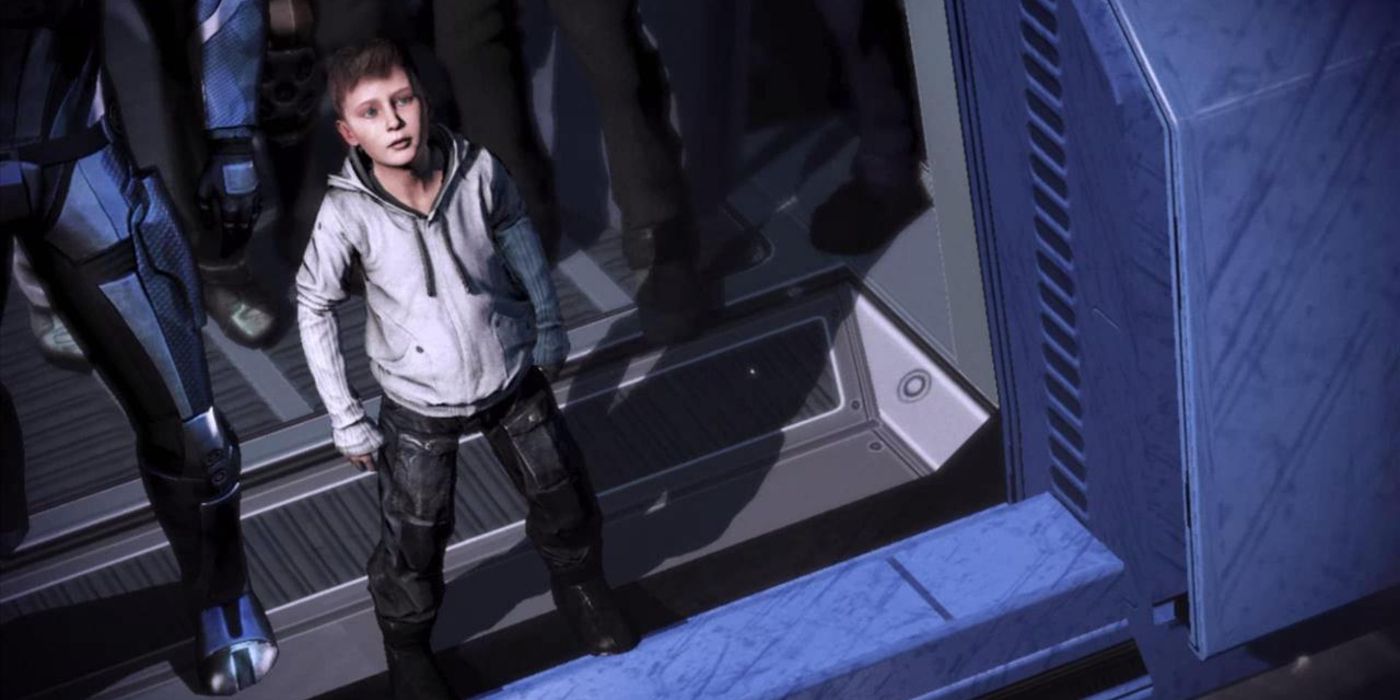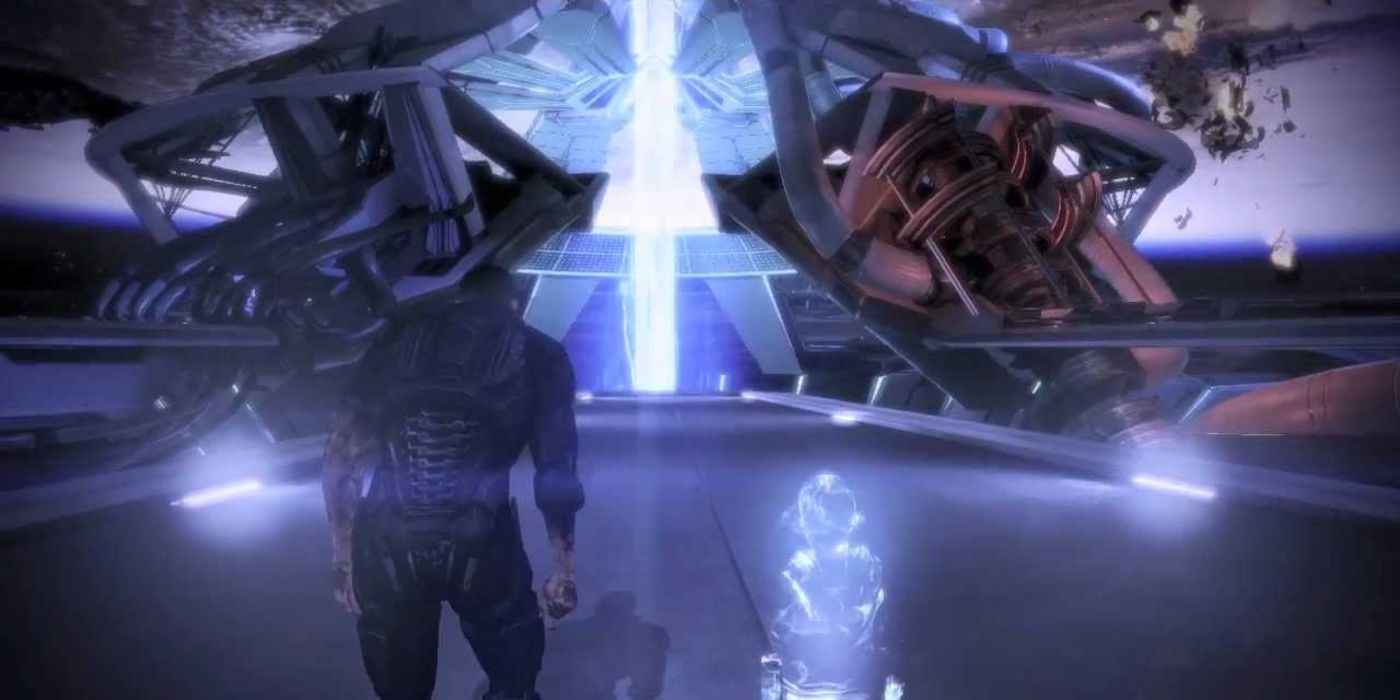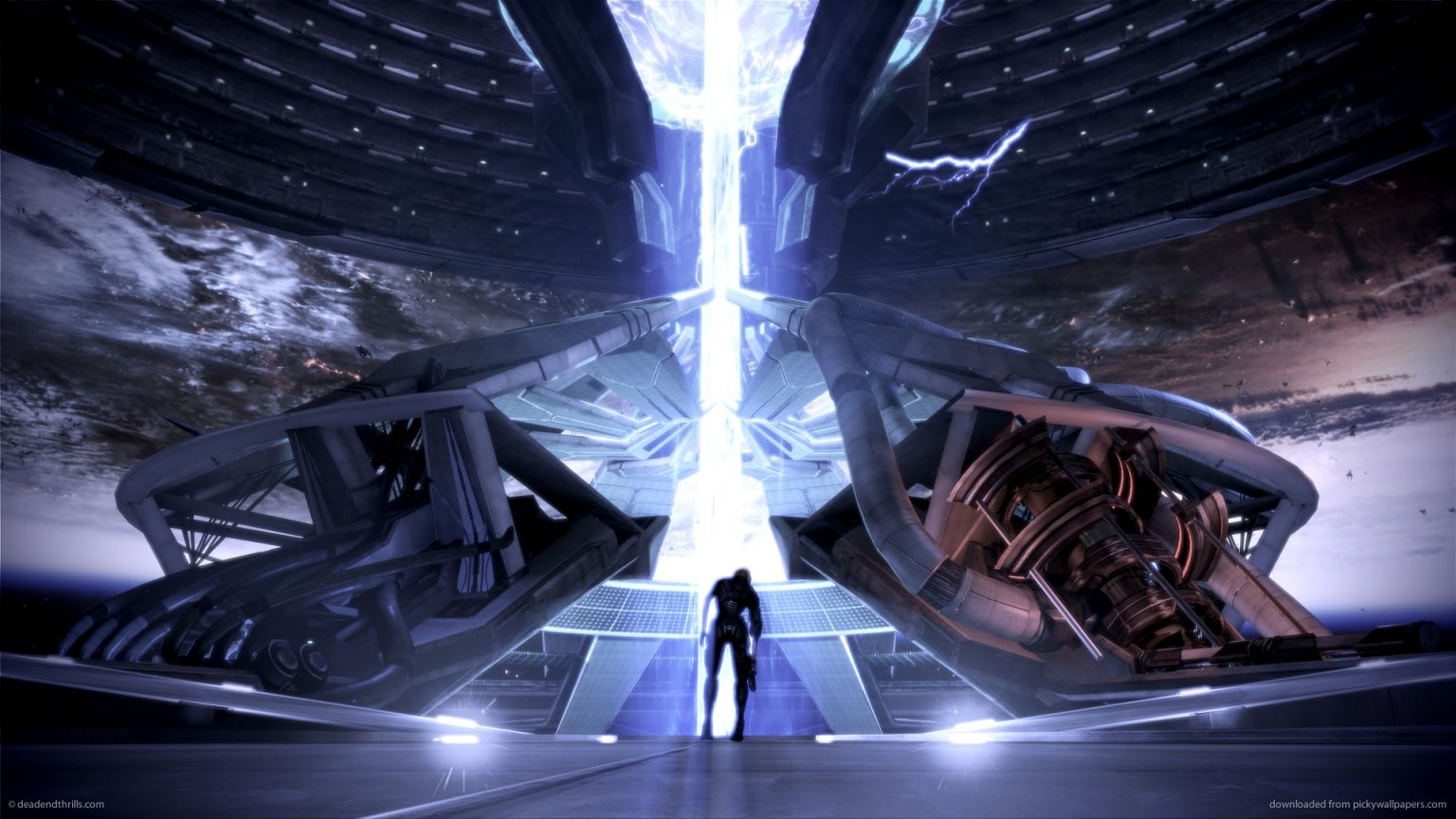At the beginning of Mass Effect 3, Commander Shepard will happen upon a young, nameless boy playing by himself. But after watching him board a drop shuttle, Shepard witnesses its immediate destruction, killing the child in the process.
But for some reason, this boy stays in Shepard's mind throughout the entirety of Mass Effect 3, despite the Commander having witnessed the deaths of their own close crewmates like Ashley or Kaidan. Later on, an omniscient entity appears as this child. Why is the young boy so significant?
The End of Mass Effect 3 and the Catalyst
For those who have finished the Mass Effect trilogy, they'll know that the shape a certain entity called the Catalyst takes at the infamous end is the boy that Shepard met at the beginning of the game. Before Shepard speaks with it at the end, it was thought that the Catalyst was used to complete the Crucible, a superweapon made by the Protheans to defeat the Reapers.
More accurately, the Catalyst is an artificial intelligence that holds the collective consciousness and memories of all the Reapers, meaning it also contains the memories of many civilizations dating back countless years. The Catalyst was created by the Leviathans, another ancient race that precedes the Reapers. The Leviathans wanted to prevent the Reapers from completely destroying organic life, so they created the Catalyst.
But as for who the boy is, canonically speaking, he isn't anyone of significance. He's an embodiment of PTSD that Shepard has when dealing with the stress of trying to save the universe, and all of the lives that are lost in the process. Before the boy died, he seems to be simply a kid in need of help as Earth was under attack that Shepard became attached to.
However, the connection between Catalyst and the boy, and why it would choose to personify itself this way during Mass Effect 3's catastrophic ending, is not canonically explained.
Mass Effect 3's Indoctrination Theory
The Indoctrination Theory is one of the biggest theories in the Mass Effect community, but it's worth mentioning that BioWare has confirmed that this wasn't its intention when developing the game. However, the Indoctrination Theory has so much evidence that some feel it makes more sense than any of the canon Mass Effect 3 endings.
Fans will know that one of the most threatening powers Reapers have is the ability to control minds, but hosts don't need to be near a real Reaper for this to happen. Missions that Shepard completes throughout the series show indoctrinated husks in settings like a dead Reaper, and Reapers can also implement mind control through holograms or Reaper technology as well. Taking these facts into consideration, many fans believe that Shepard must be indoctrinated by the time the third game rolls around, and the boy nearly proves this theory.
No characters besides Commander Shepard seem to notice the boy at the beginning of the game when he's still alive, including the soldiers helping civilians onto shuttles. And at the end of Mass Effect 3, Shepard doesn't question why Catalyst personifies itself as the boy in a spectral form. It's also never canonically explained why Shepard has nightmares of the boy specifically and no one else; it's just assumed that it's PTSD.
But the theory states that the nightmares are the Reapers invading Shepard's mind, and Shepard never has nightmares about any other lost souls. Interestingly, both Shepard's male and female voices can be heard echoing Catalyst's voice when it appears as the child. It would also make sense that, using mind control, the Reapers would want to stop Shepard from activating the Crucible and destroying them, especially as a last resort in the final moments of the game.
Though this theory is strong and many fans accept it as canon, it's unofficial, and Mass Effect 4 will likely denounce this hypothesis in some way.
Mass Effect: Legendary Edition is out now for PC, PS4, and Xbox One.



